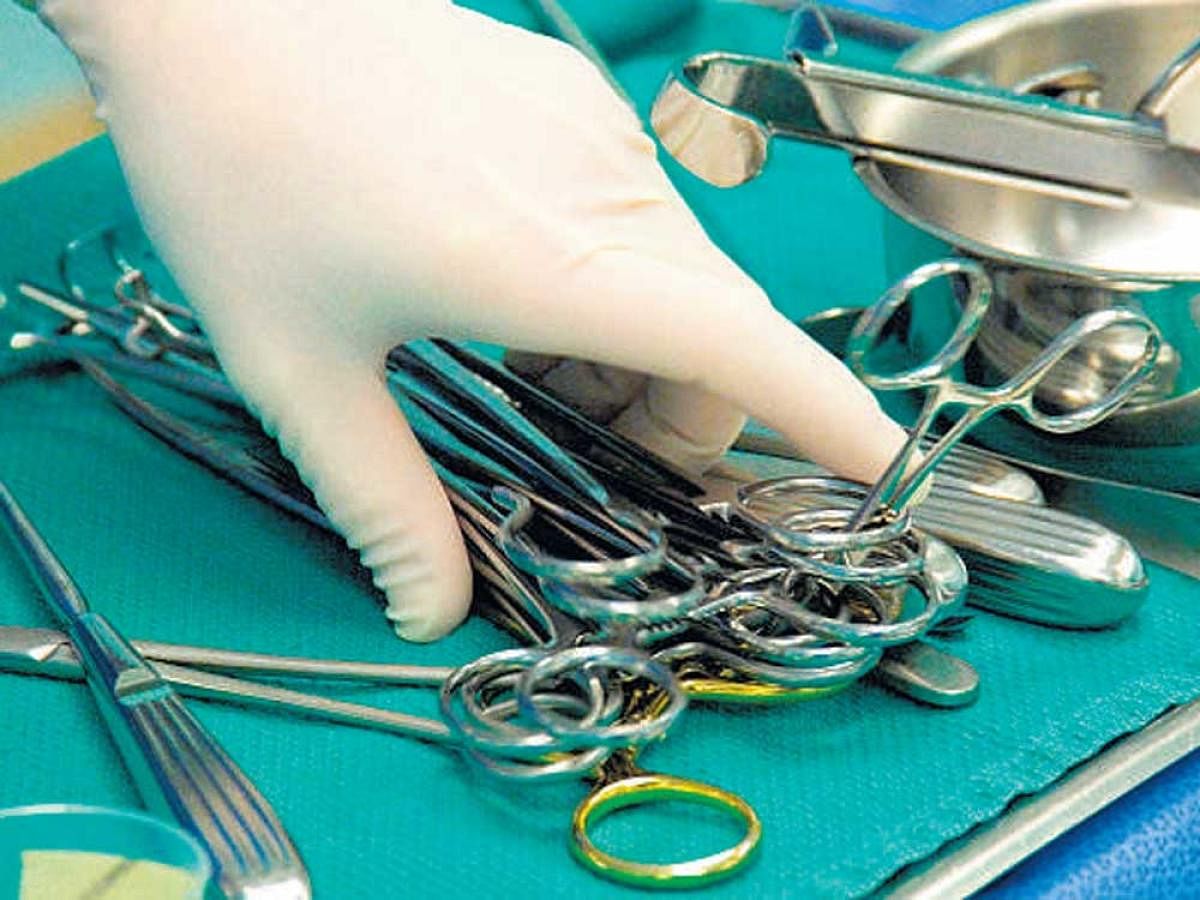
A 35-year-old Uzbek man, who had lost his voice due to a surgery for treating hypothyroidism gone wrong, was able to speak after 15 years following a laser surgery at a hospital in here recently.
Khusan Saidov, who suffered from enlargement of the thyroid gland due to hypothyroidism, had got himself operated at a hospital in Uzbekistan in 2002.
But that led to complications and damaged his airways and both the vocal cords, Dr Ameet Kishore, senior consultant- ENT at the Indraprastha Apollo Hospitals said.
"The patient lost his voice as recurrent laryngeal nerves (RLN) got damaged after he underwent the surgical procedure tracheostomy. This which resulted in paralysis of the vocal cords leading to loss of speech and difficulty in breathing," Dr Kishore said.
The recurrent laryngeal nerves control all intrinsic muscles of the larynx. These muscles act to open, close, and adjust the tension of the vocal cords, and include the posterior cricoarytenoid muscles, the only muscle to open the vocal cords.
Saidov remained voiceless for almost 15 years before approaching doctors in India.
He was admitted to the hospital on July 10 and a team of doctors performed 'Kashima procedure' on him.
"It is an endoscopic laser procedure performed for treating respiratory difficulty caused as a result of bilateral abductor vocal fold paralysis (disruption of the vocal cords leading to loss of voice)," Dr Suresh Singh Naruka, senior consultant-ENT at the hospital, said.
"When the patient first visited us, we realised that both his vocal cords are positioned in such a way that there was no space between the cords for him to breathe from the nose or mouth.
"For 15 years, Saidov was breathing from a hole created in his neck. He developed bilateral vocal cord palsy. So with the 'Kashima procedure' (laser treatment), we created a space between the vocal cords to restore normal breathing pattern with a normal voice. The hole in the neck was closed in the second stage of the surgery," Dr Naruka explained.
He was discharged from the hospital the next day and is now recovering well, the doctor said.
Saidov, who recently visited the hospital for a follow-up checkup said, "It feels like a second birth. For several years, I wasn't able to express myself. I visited many countries, however, there was no hope of corrective surgery. Thanks to the team of doctors here, I am able to lead a normal life now."
Tracheostomy is being replaced by procedures like Kashima for certain conditions.
Kashima is laser surgery, the latest technology which leads to faster healing, the outcomes are better with less hospital stay and better rates of preciseness in comparison to tracheostomy.